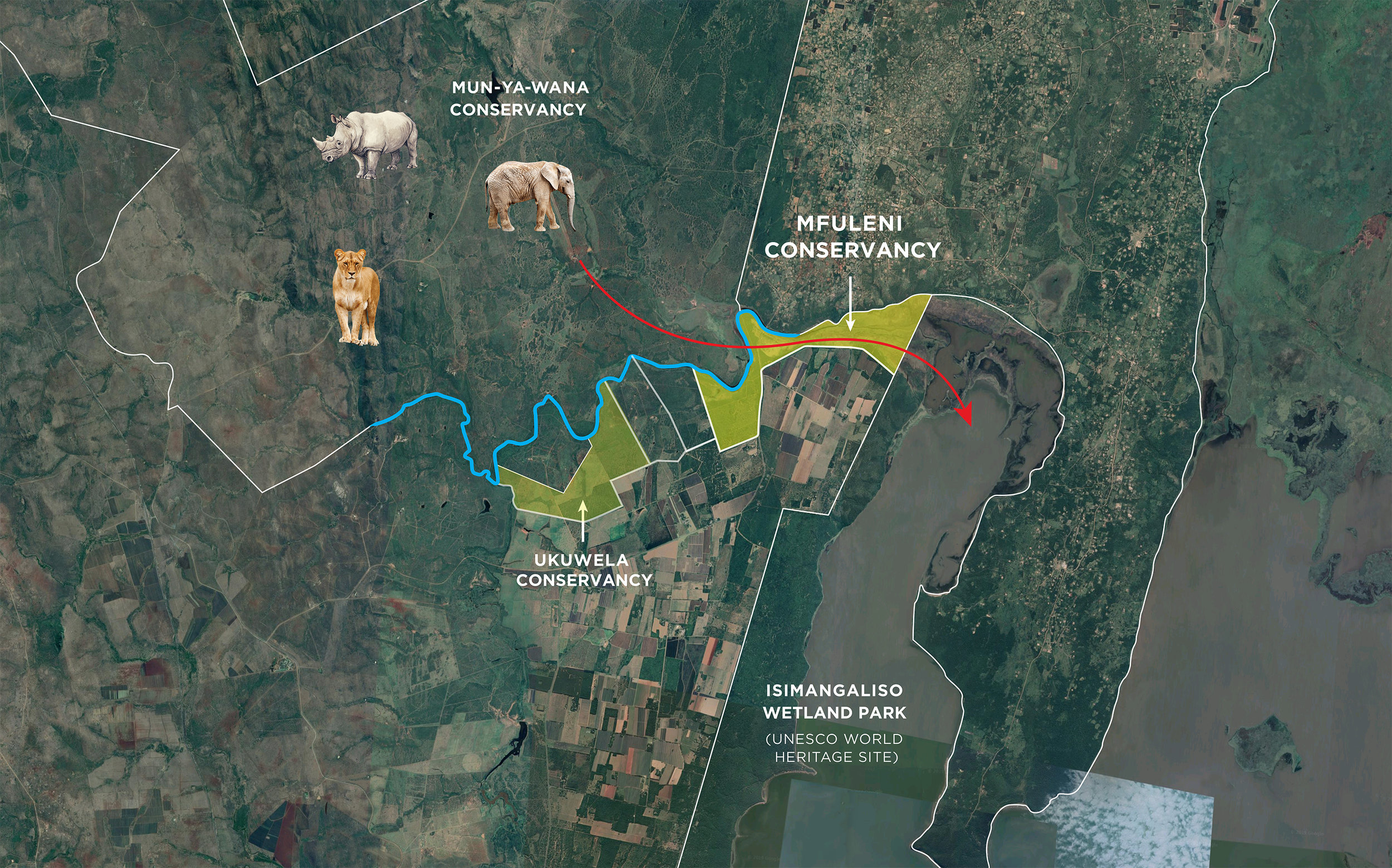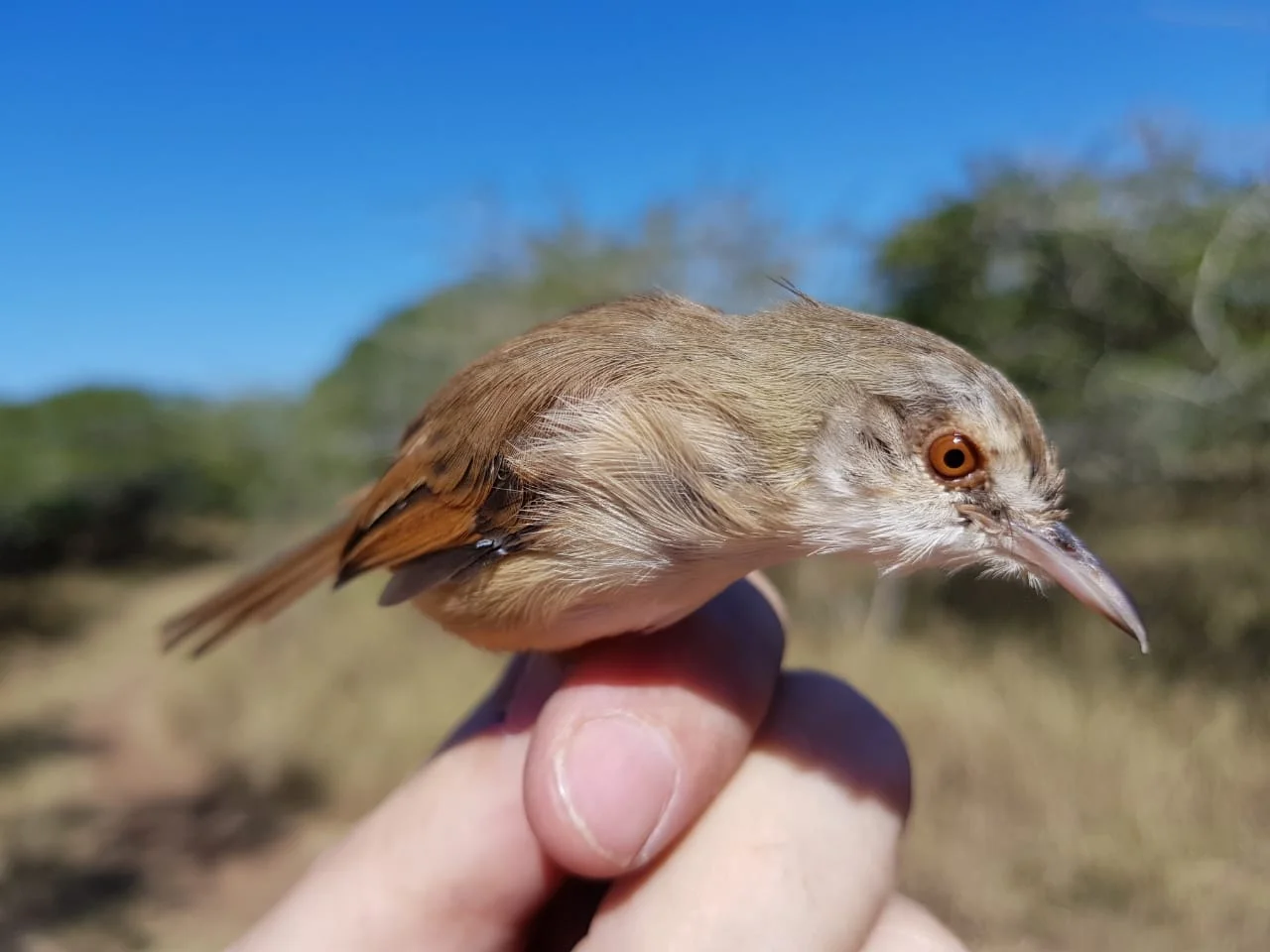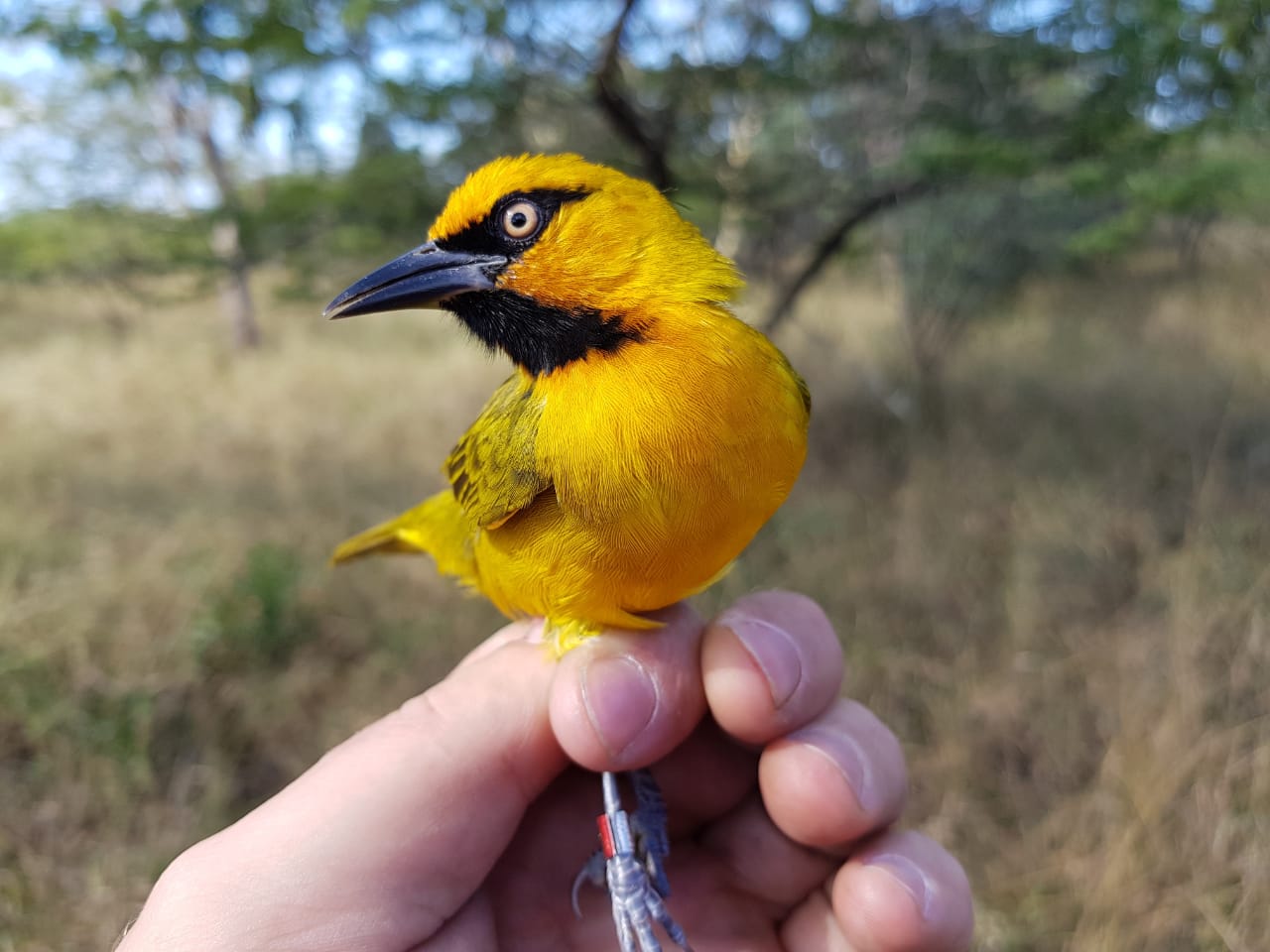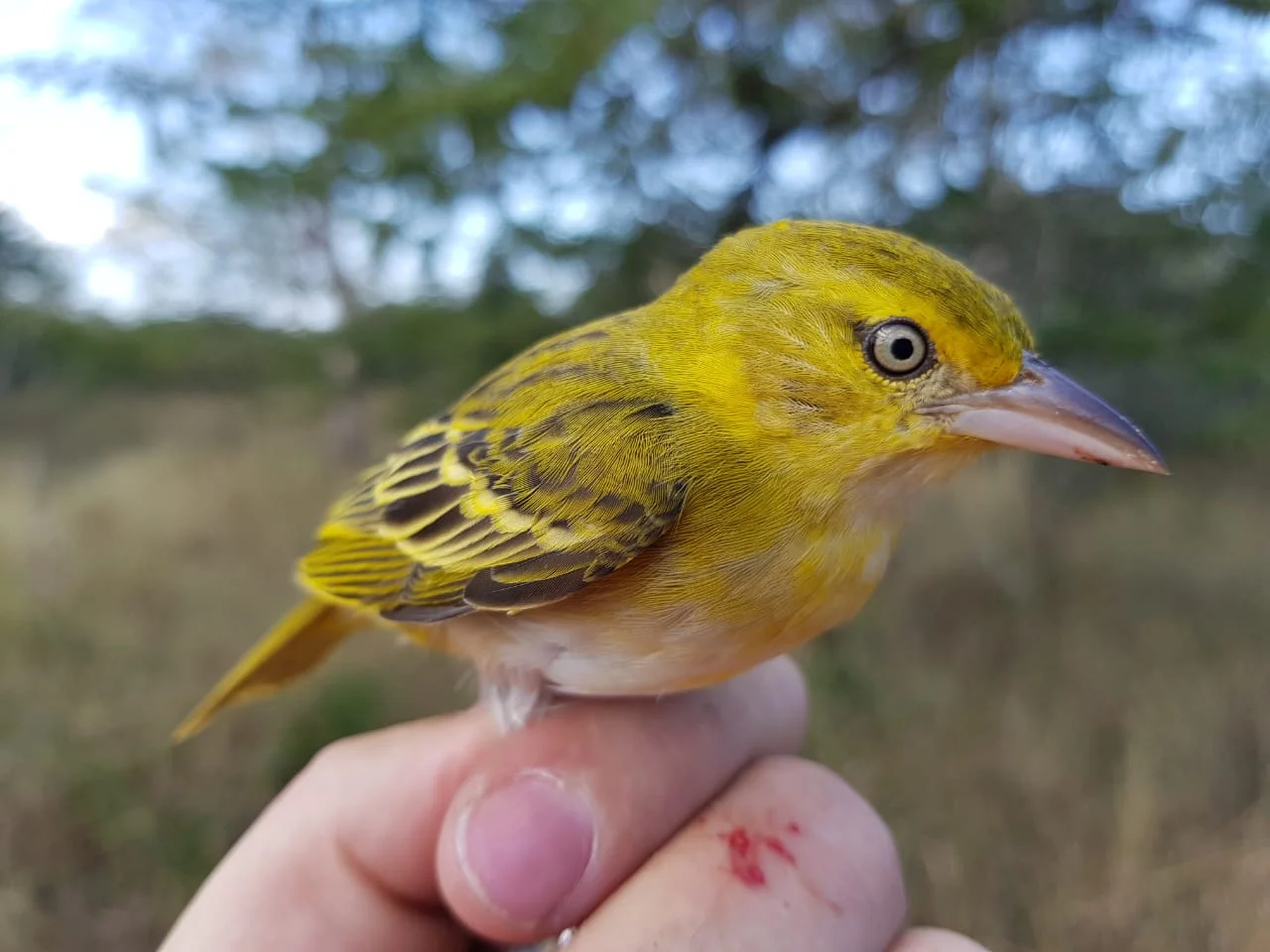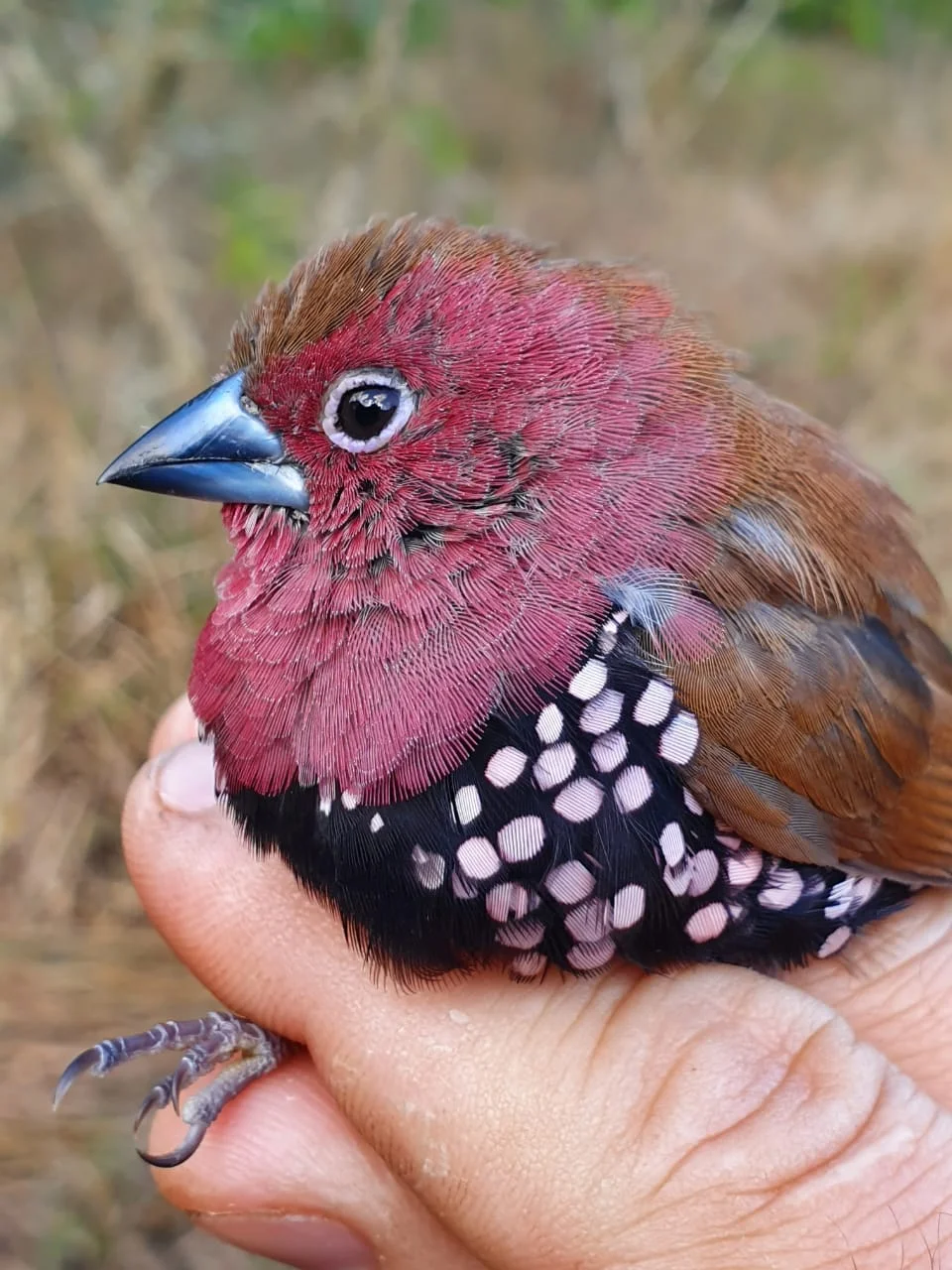ANNOUCING THE MFULENI CONSERVANCY
Wild Tomorrow Fund is delighted to announce our new habitat protection project, the Mfuleni Conservancy, a corridor of land that lies between the Mun-Ya-Wana Conservancy (home to Phinda Private Reserve) and the UNESCO World Heritage iSimangaliso Wetland Park.
The 1,170 acre Mfuleni Conservancy from the air, looking down on the Msinene River.
The Mfuleni Conservancy is located in the KwaZulu-Natal Province of South Africa, within the global biodiversity hotspot (the Maputaland-Pondoland-Albany hotspot).
Imagine a herd of elephants wading across a river glistening in the African midday sun. For the first time in decades they realize they can access the river and the lush habitat on its southern bank. The fence that had stopped them before is now gone. One by one they cross the river to wade in the water and investigate this land that the elders remember calling home.
This scenario is now one step closer to becoming a reality.
Wild Tomorrow Fund’s latest habitat protection project, the Mfuleni Conservancy, will expand habitat for elephant, critically endangered black rhinoceros, cheetah and other species.
The 1,171 acre Mfuleni Conservancy is located in the KwaZulu-Natal Province of South Africa in one of the world's 36 recognized biodiversity hotspots. By protecting this corridor of land, Wild Tomorrow Fund is preserving the ability to expand and reconnect two existing protected areas: the 73,900 acre Mun-Ya-Wana Conservancy and the 886,000 acre iSimangaliso Wetland Park, a UNESCO World Heritage site.
The Mfuleni Conservancy is home to a section of critically endangered semi-deciduous dry forest (sand forest) while its water-filled river and delta habitat provides an important freshwater source for wildlife. Access to water is increasingly important for the future of wildlife, providing added resiliency in an uncertain, climate-changed future. The Conservancy land also creates a protective buffer along the Msinene River for neighboring iSimangaliso Wetland Park, the largest estuary system in Africa, home to South Africa's largest hippo population and over 500 bird species.
With the current rate of global species extinction accelerating, scientists around the world are warning that up to 1 million species are threatened with extinction – many within decades. A critical part of any solution to this crisis is to protect, restore and connect natural habitats.
“We are delighted to contribute to global efforts to save and restore habitat for wildlife. We hope to see elephants crossing over into this riverine habitat soon, expanding their herds and rediscovering land to which they have been blocked access for 80 years” said Wild Tomorrow Executive Director, John Steward.
The Mfuleni Conservancy is Wild Tomorrow Fund's second habitat conservation project on the south bank of the Msinene River, following the launch of the Ukuwela Conservancy in June 2017. Mfuleni is situated next to the Mdhuku Community, an important neighbor and partner in conservation. This project will create additional community employment opportunities through our all-women “Green Mambas” team, skilled at alien plant removal. Wild Tomorrow Fund will also be by hiring additional staff from the community to assist in land management and anti-poaching patrols.
“Because the biggest threat to endangered species is habitat loss, land conservation has been a key focus for Wild Tomorrow Fund" said Board Chairman, Seth Hendon. “In addition to being a potential wildlife corridor, the area we are protecting is considered by Conservation International to be situated in one of the world’s biologically richest and most endangered regions. Having acquired control of this critical property, we will now turn our focus to protecting and rewilding, thereby expanding the safe, natural habitat and population sizes of the wildlife in KwaZulu-Natal.”
Work has already begun at the Mfuleni Conservancy, with a first amphibian survey and bird survey completed. Together with camera traps which were deployed this week, we will be able to map the current levels of biodiversity and monitor how it recovers as the corridor is protected and rehabilitated.
Wild Tomorrow Fund sincerely thanks the many generous donors, partners and foundations for making the wildlife corridor vision a big step closer to reality for wildlife in KwaZulu-Natal South Africa. We send special thanks to Mr. Norman Baggaley, the former controlling owner of this special piece of land, and Wild Tomorrow Fund’s partner in the conservation of Mfuleni.
We look forward to keeping you updated on our work as we begin to restore and rewild Wild Tomorrow Fund’s Mfuleni Conservancy.



